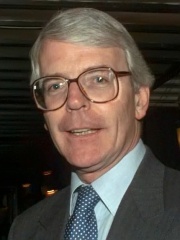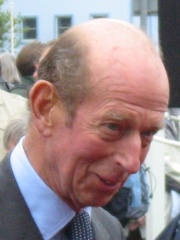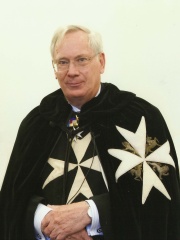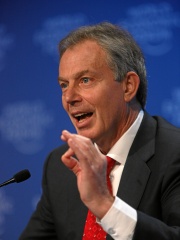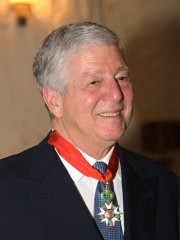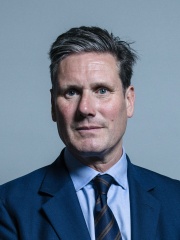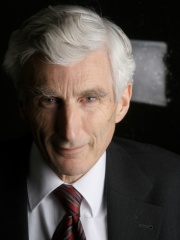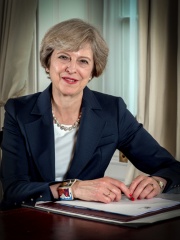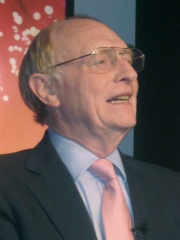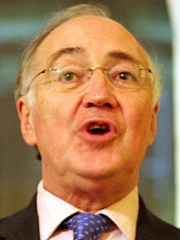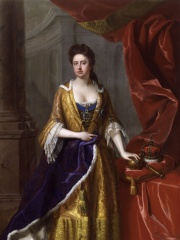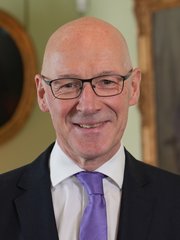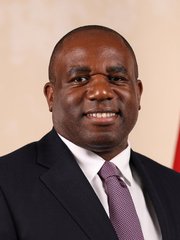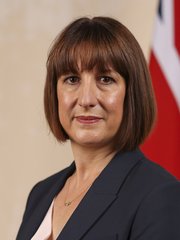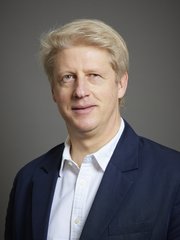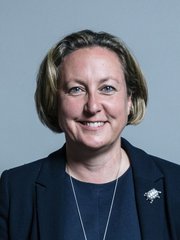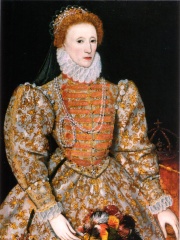
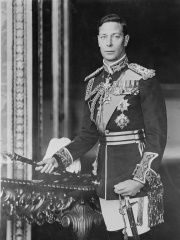
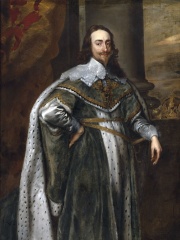
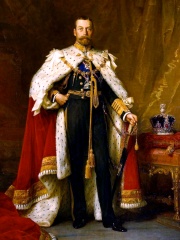
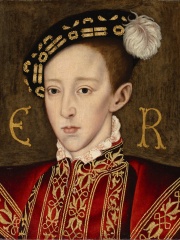
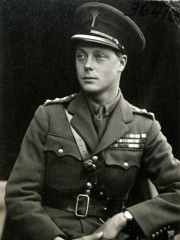
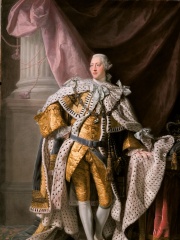
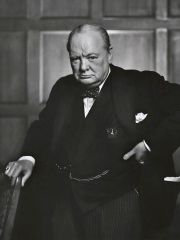
The Most Famous
POLITICIANS from United Kingdom
This page contains a list of the greatest British Politicians. The pantheon dataset contains 19,576 Politicians, 805 of which were born in United Kingdom. This makes United Kingdom the birth place of the 5th most number of Politicians behind France, and Italy.
Top 10
The following people are considered by Pantheon to be the top 10 most legendary British Politicians of all time. This list of famous British Politicians is sorted by HPI (Historical Popularity Index), a metric that aggregates information on a biography's online popularity. Visit the rankings page to view the entire list of British Politicians.

1. Elizabeth I of England (1533 - 1603)
With an HPI of 96.04, Elizabeth I of England is the most famous British Politician. Her biography has been translated into 149 different languages on wikipedia.
Elizabeth I (7 September 1533 – 24 March 1603) was Queen of England and Ireland from 17 November 1558 until her death in 1603. She was the last and longest reigning monarch of the House of Tudor. Her eventful reign, and its effect on history and culture, gave name to the Elizabethan era. Elizabeth was the only surviving child of Henry VIII and his second wife, Anne Boleyn. When Elizabeth was two years old, her parents' marriage was annulled, her mother was executed, and Elizabeth was declared illegitimate. Henry restored her to the line of succession when she was 10. After Henry's death in 1547, Elizabeth's younger half-brother Edward VI ruled until his own death in 1553, bequeathing the crown to a Protestant cousin, Lady Jane Grey, and ignoring the claims of his two half-sisters, Mary and Elizabeth, despite statutes to the contrary. Edward's will was quickly set aside and the Catholic Mary became queen, deposing Jane. During Mary's reign, Elizabeth was imprisoned for nearly a year on suspicion of supporting Protestant rebels. Upon Mary's 1558 death, Elizabeth succeeded to the throne and set out to rule by good counsel. She depended heavily on a group of trusted advisers led by William Cecil, whom she created Baron Burghley. One of her first actions as queen was the establishment of an English Protestant church, of which she became the supreme governor. This arrangement, later named the Elizabethan Religious Settlement, would evolve into the Church of England. It was expected that Elizabeth would marry and produce an heir; however, despite numerous courtships, she never did. Because of this she is sometimes referred to as the "Virgin Queen". She was succeeded by her cousin, James VI of Scotland. In government, Elizabeth was more moderate than her father and siblings had been. One of her mottoes was video et taceo ("I see and keep silent"). In religion, she was relatively tolerant and avoided systematic persecution. After the pope declared her illegitimate in 1570, which in theory released English Catholics from allegiance to her, several conspiracies threatened her life, all of which were defeated with the help of her ministers' secret service, run by Francis Walsingham. Elizabeth was cautious in foreign affairs, manoeuvring between the major powers of France and Spain. She half-heartedly supported a number of ineffective, poorly resourced military campaigns in the Netherlands, France, and Ireland. By the mid-1580s, England could no longer avoid war with Spain. As she grew older, Elizabeth became celebrated for her virginity. A cult of personality grew around her which was celebrated in the portraits, pageants, and literature of the day. The Elizabethan era is famous for the flourishing of English drama, led by playwrights such as William Shakespeare and Christopher Marlowe, the prowess of English maritime adventurers, such as Francis Drake and Walter Raleigh, and for the defeat of the Spanish Armada. Some historians depict Elizabeth as a short-tempered, sometimes indecisive ruler, who enjoyed more than her fair share of luck. Towards the end of her reign, a series of economic and military problems weakened her popularity. Elizabeth is acknowledged as a charismatic performer and a dogged survivor in an era when government was ramshackle and limited, and when monarchs in neighbouring countries faced internal problems and religious civil wars that jeopardised their thrones. After the short, disastrous reigns of her half-siblings, her 44 years on the throne provided welcome stability for the kingdom and helped to forge a sense of national identity.

2. George VI (1895 - 1952)
With an HPI of 90.71, George VI is the 2nd most famous British Politician. His biography has been translated into 108 different languages.
George VI (Albert Frederick Arthur George; 14 December 1895 – 6 February 1952) was King of the United Kingdom and the Dominions of the British Commonwealth from 11 December 1936 until his death in 1952. He was also the last Emperor of India from 1936 until the British Raj was dissolved in August 1947, and the first Head of the Commonwealth following the London Declaration of 1949. The future George VI was born during the reign of his great-grandmother Queen Victoria; he was named Albert at birth after his late great-grandfather Prince Albert of Saxe-Coburg and Gotha and was known as "Bertie" to his family and close friends. His father ascended the throne as George V in 1910. As the second son of the king, Albert was not expected to inherit the throne. He spent his early life in the shadow of his elder brother, Edward, the heir apparent. Albert attended naval college as a teenager and served in the Royal Navy and Royal Air Force during the First World War. In 1920, he was made Duke of York. He married Lady Elizabeth Bowes-Lyon in 1923, and they had two daughters, Elizabeth and Margaret. In the mid-1920s, he engaged speech therapist Lionel Logue to treat his stutter, which he learned to manage to some degree. His elder brother ascended the throne as Edward VIII after their father died in 1936, but Edward abdicated later that year to marry the twice-divorced American socialite Wallis Simpson. As heir presumptive to Edward VIII, Albert became king, taking the regnal name George VI. In September 1939, the British Empire and most Commonwealth countries—but not Ireland—declared war on Nazi Germany, following the invasion of Poland. War with the Kingdom of Italy and the Empire of Japan followed in 1940 and 1941, respectively. George VI was seen as sharing the hardships of the common people and his popularity soared. Buckingham Palace was bombed during the Blitz while the King and Queen were there, and his younger brother the Duke of Kent was killed on active service. George became known as a symbol of British determination to win the war. Britain and its allies were victorious in 1945, but the British Empire declined. Ireland had largely broken away, followed by the independence of India and Pakistan in 1947. George relinquished the title of Emperor of India in June 1948 and instead adopted the new title of Head of the Commonwealth. He was beset by smoking-related health problems in the later years of his reign and died at Sandringham House, aged 56, of a coronary thrombosis. He was succeeded by his elder daughter, Elizabeth II.

3. Charles I of England (1600 - 1649)
With an HPI of 89.90, Charles I of England is the 3rd most famous British Politician. His biography has been translated into 93 different languages.
Charles I (19 November 1600 – 30 January 1649) was King of England, Scotland, and Ireland from 27 March 1625 until his execution in 1649. Charles was born into the House of Stuart as the second son of King James VI of Scotland. After his father inherited the English throne in 1603, he moved to England, where he spent much of the rest of his life. He became heir apparent to the kingdoms of England, Scotland, and Ireland in 1612 upon the death of his elder brother, Henry Frederick, Prince of Wales. An unsuccessful and unpopular attempt to marry him to Infanta Maria Anna of Spain culminated in an eight-month visit to Spain in 1623 that demonstrated the futility of the marriage negotiation. Two years later, shortly after his accession, he married Henrietta Maria of France. After his accession in 1625, Charles quarrelled with the English Parliament, which sought to curb his royal prerogative. He believed in the divine right of kings and was determined to govern according to his own conscience. Many of his subjects opposed his policies, in particular the levying of taxes without Parliamentary consent, and perceived his actions as those of a tyrannical absolute monarch. His religious policies, coupled with his marriage to a Catholic, generated antipathy and mistrust from Reformed religious groups such as the English Puritans and Scottish Covenanters, who thought his views too Catholic. He supported high church Anglican ecclesiastics and failed to aid continental Protestant forces successfully during the Thirty Years' War. His attempts to force the Church of Scotland to adopt high Anglican practices led to the Bishops' Wars, strengthened the position of the English and Scottish parliaments, and helped precipitate his own downfall. From 1642, Charles fought the armies of the English and Scottish parliaments in the English Civil War. After his defeat in 1645 at the hands of the Parliamentarian New Model Army, he fled north from his base at Oxford. Charles surrendered to a Scottish force and, after lengthy negotiations between the English and Scottish parliaments, was handed over to the Long Parliament in London. Charles refused to accept his captors' demands for a constitutional monarchy, and temporarily escaped captivity in November 1647. Re-imprisoned on the Isle of Wight, he forged an alliance with Scotland, but by the end of 1648, the New Model Army had consolidated its control over England. Charles was tried, convicted, and executed for high treason in January 1649. The monarchy was abolished and the Commonwealth of England was established as a republic. The monarchy was restored in 1660, with Charles's son Charles II as king.

4. George V (1865 - 1936)
With an HPI of 89.85, George V is the 4th most famous British Politician. His biography has been translated into 98 different languages.
George V (George Frederick Ernest Albert; 3 June 1865 – 20 January 1936) was King of the United Kingdom and the British Dominions, and Emperor of India, from 6 May 1910 until his death in 1936. George was born during the reign of his paternal grandmother, Queen Victoria, as the second son of the Prince and Princess of Wales (later King Edward VII and Queen Alexandra). He was third in the line of succession to the British throne behind his father, and his elder brother, Prince Albert Victor. From 1877 to 1892, George served in the Royal Navy, until his elder brother's unexpected death in January 1892 put him directly in line for the throne. The next year George married his brother's former fiancée, Princess Victoria Mary of Teck, and they had six children. When Queen Victoria died in 1901, George's father ascended the throne as Edward VII, and George was created Prince of Wales. He became king-emperor on his father's death in 1910. George's reign saw the rise of socialism, communism, fascism, Irish republicanism, and the Indian independence movement. All of these developments radically changed the political landscape of the British Empire, which itself reached its territorial peak by the beginning of the 1920s. The Parliament Act 1911 established the supremacy of the elected British House of Commons over the unelected House of Lords. As a result of the First World War, the empires of his first cousins Tsar Nicholas II of Russia and Kaiser Wilhelm II of Germany fell, while the British Empire expanded to its greatest effective extent. In 1917, George became the first monarch of the House of Windsor, which he renamed from the House of Saxe-Coburg and Gotha as a result of anti-German public sentiment. He appointed the first Labour ministry in 1924, and the 1931 Statute of Westminster recognised the Empire's Dominions as separate, independent states within the British Commonwealth of Nations. George suffered from smoking-related health problems during his later reign. On his death in January 1936, he was succeeded by his eldest son, Edward VIII. Edward abdicated in December of that year and was succeeded by his younger brother Albert, who took the regnal name George VI.
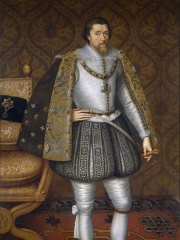
5. James VI and I (1566 - 1625)
With an HPI of 89.83, James VI and I is the 5th most famous British Politician. His biography has been translated into 86 different languages.
James VI and I (James Charles Stuart; 19 June 1566 – 27 March 1625) was King of Scotland as James VI from 24 July 1567 and King of England and Ireland as James I from the union of the Scottish and English crowns on 24 March 1603 until his death in 1625. Though he long attempted to get both countries to adopt a closer political union, the kingdoms of Scotland and England remained sovereign states, with their own parliaments, judiciaries, and laws, ruled by James in personal union. James was the son of Mary, Queen of Scots, and a great-great-grandson of Henry VII, King of England and Lord of Ireland, and thus a potential successor to all three thrones. He acceded to the Scottish throne at the age of thirteen months, after his mother was forced to abdicate. Although his mother was a Catholic, James was raised as a Protestant. Four regents governed during his minority, which ended officially in 1578, though he did not gain full control of his government until 1583. In 1589, he married Anne of Denmark. Three of their children survived to adulthood: Henry Frederick, Elizabeth, and Charles. In 1603, James succeeded his cousin Elizabeth I, the last Tudor monarch of England and Ireland, who died childless. He reigned in all three kingdoms for 22 years, a period known as the Jacobean era, until his death in 1625. After the Union of the Crowns, he based himself in England from 1603, returning to Scotland only once, in 1617, and styled himself "King of Great Britain and Ireland". He advocated for a single parliament for England and Scotland. In his reign, the Plantation of Ulster and English colonisation of the Americas began. At 57 years and 246 days, James's reign in Scotland was the longest of any Scottish monarch. He achieved most of his aims in Scotland but faced great difficulties in England, including the Gunpowder Plot in 1605 and conflicts with the English Parliament. Under James, the "Golden Age" of Elizabethan literature and drama continued, with writers such as William Shakespeare, John Donne, Ben Jonson, and Francis Bacon contributing to a flourishing literary culture. James was a prolific writer, authoring works such as Daemonologie (1597), The True Law of Free Monarchies (1598), and Basilikon Doron (1599). He sponsored the translation of the Bible into English (later named after him, the Authorized King James Version), and the 1604 revision of the Book of Common Prayer. Contemporary courtier Anthony Weldon claimed that James had been termed "the wisest fool in Christendom" (wise in small things, foolish otherwise), an epithet associated with his character ever since. Since the latter half of the 20th century, historians have tended to revise James's reputation and treat him as a serious and thoughtful monarch. He was strongly committed to a peace policy, and tried to avoid involvement in religious wars, especially the Thirty Years' War that devastated much of Central Europe. He tried but failed to prevent the rise of hawkish elements in the English Parliament who wanted war with Spain. The first English king of the House of Stuart, he was succeeded by his second son, Charles I.

6. Edward VI of England (1537 - 1553)
With an HPI of 89.67, Edward VI of England is the 6th most famous British Politician. His biography has been translated into 83 different languages.
Edward VI (12 October 1537 – 6 July 1553) was King of England and Ireland from 28 January 1547 until his death in 1553. He was crowned on 20 February 1547 at the age of nine. The only surviving son of Henry VIII by his third wife, Jane Seymour, Edward was the first English monarch to be raised as a Protestant. During his reign, the realm was governed by a regency council because Edward never reached maturity. The council was first led by his uncle Edward Seymour, Duke of Somerset (1547–1549), and then by John Dudley, Duke of Northumberland (1550–1553). Edward's reign was marked by many economic problems and social unrest that in 1549 erupted into riot and rebellion. An expensive war with Scotland, at first successful, ended with military withdrawal from Scotland and Boulogne-sur-Mer in exchange for peace. The transformation of the Church of England into a recognisably Protestant body also occurred under Edward, who took great interest in religious matters. His father, Henry VIII, had severed the link between the English Church and Rome but continued to uphold most Catholic doctrine and ceremony. During Edward's reign, Protestantism was established for the first time in England, with reforms that included the abolition of clerical celibacy and the Mass and the imposition of compulsory English in church services. In 1553, at age 15, Edward fell ill. When his sickness was discovered to be terminal, he and his council drew up a "Devise for the Succession" to prevent the country's return to Catholicism. Edward named his Protestant first cousin once removed, Lady Jane Grey, as his heir, excluding his half-sisters, Mary and Elizabeth. This decision was disputed following Edward's death, and Jane was deposed by Mary—the elder of the two half-sisters—nine days after becoming queen. Mary, a Catholic, reversed Edward's Protestant reforms during her reign, but after her, Elizabeth restored them in 1559.

7. Edward VIII (1894 - 1972)
With an HPI of 89.23, Edward VIII is the 7th most famous British Politician. His biography has been translated into 96 different languages.
Edward VIII (Edward Albert Christian George Andrew Patrick David; 23 June 1894 – 28 May 1972), later known as the Duke of Windsor, was King of the United Kingdom and the British Dominions, and Emperor of India, from 20 January 1936 until his abdication in December of the same year. Edward was born during the reign of his great-grandmother Queen Victoria as the eldest child of the Duke and Duchess of York, later King George V and Queen Mary. He was created Prince of Wales on his 16th birthday, seven weeks after his father succeeded as king. As a young man, Edward served in the British Army during the First World War and undertook several overseas tours on behalf of his father. The Prince of Wales gained popularity due to his charm and charisma, and his fashion sense became a hallmark of the era. After the war, his conduct began to give cause for concern; he engaged in a series of sexual affairs that worried both his father and the British prime minister, Stanley Baldwin. Upon his father's death in 1936, Edward became the second monarch of the House of Windsor. The new king showed impatience with court protocol, and caused consternation among politicians by his apparent disregard for established constitutional conventions. Only months into his reign, Edward caused a constitutional crisis through his proposal to marry Wallis Simpson, an American who had divorced her first husband and was seeking a divorce from her second. The prime ministers of the United Kingdom and the Dominions opposed the marriage, arguing a divorced woman with two living ex-husbands was politically and socially unacceptable as a prospective queen consort. Additionally, such a marriage would have conflicted with Edward's status as titular head of the Church of England, which, at the time, disapproved of remarriage after divorce if a former spouse was still alive. Edward knew the Baldwin government would resign if the marriage went ahead, which could have forced a general election and would have ruined his status as a politically neutral constitutional monarch. When it became apparent he could not marry Simpson and remain on the throne, he abdicated. He was succeeded by his younger brother, George VI. With a reign of 326 days, Edward was one of the shortest-reigning British monarchs to date. After his abdication, Edward was created Duke of Windsor. He married Simpson in France on 3 June 1937, after her second divorce became final. Later that year, the couple toured Nazi Germany, which fed rumours that he was a Nazi sympathiser. During the Second World War, Edward was at first stationed with the British Military Mission to France. After the fall of France, he was appointed Governor of the Bahamas. After the war, Edward spent the rest of his life in France. He and Wallis remained married until his death in 1972; they had no children.

8. George III of the United Kingdom (1738 - 1820)
With an HPI of 89.11, George III of the United Kingdom is the 8th most famous British Politician. His biography has been translated into 92 different languages.
George III (George William Frederick; 4 June 1738 – 29 January 1820) was King of Great Britain and Ireland from 25 October 1760 until his death in 1820. The Acts of Union 1800 unified Great Britain and Ireland into the United Kingdom of Great Britain and Ireland, with George as its king. He was concurrently duke and prince-elector of Hanover in the Holy Roman Empire before becoming King of Hanover on 12 October 1814. He was the first monarch of the House of Hanover who was born in Great Britain, spoke English as his first language, and never visited Hanover. George was born during the reign of his paternal grandfather, King George II, as the first son of Frederick, Prince of Wales, and Princess Augusta of Saxe-Gotha. Following his father's death in 1751, Prince George became heir apparent and Prince of Wales. He succeeded to the throne on George II's death in 1760. The following year, he married Princess Charlotte of Mecklenburg-Strelitz, with whom he had 15 children. George III's life and reign were marked by a series of military conflicts involving his kingdoms, much of the rest of Europe, and places farther afield in Africa, the Americas and Asia. Early in his reign, Great Britain defeated France in the Seven Years' War, becoming the dominant European power in North America and India. However, Britain lost 13 of its North American colonies in the American War of Independence. Further wars against revolutionary and Napoleonic France from 1793 concluded in the defeat of Napoleon at the Battle of Waterloo in 1815. In 1807, the transatlantic slave trade was banned from the British Empire. In the later part of his life, George had recurrent and eventually permanent mental illness. The exact nature of George's illness is not known definitively, but historians and medical experts have suggested that his symptoms and behaviour traits were consistent with either bipolar disorder or porphyria. In 1810, George suffered a final relapse, and his eldest son, George, Prince of Wales, was named Prince Regent the following year. The King died aged 81, at which time the Regent succeeded him as George IV. George III reigned during much of the Georgian and Regency eras. At the time of his death, he was the longest-lived and longest-reigning British monarch, having reigned for 59 years and 96 days; he remains the longest-lived and longest-reigning male monarch in British history.

9. Winston Churchill (1874 - 1965)
With an HPI of 88.76, Winston Churchill is the 9th most famous British Politician. His biography has been translated into 180 different languages.
Sir Winston Leonard Spencer Churchill (30 November 1874 – 24 January 1965) was a British statesman, military officer, and writer who was Prime Minister of the United Kingdom from 1940 to 1945 (during the Second World War) and again from 1951 to 1955. For some 62 of the years between 1900 and 1964, he was a Member of Parliament (MP) and represented a total of five constituencies over that time. Ideologically an adherent to economic liberalism and imperialism, he was for most of his career a member of the Conservative Party, which he led from 1940 to 1955. He was a member of the Liberal Party from 1904 to 1924. Of mixed English and American parentage, Churchill was born in Oxfordshire into the wealthy, aristocratic Spencer family. He joined the British Army in 1895 and saw action in British India, the Mahdist War and the Second Boer War, gaining fame as a war correspondent and writing books about his campaigns. Elected a Conservative MP in 1900, he defected to the Liberals in 1904. In H. H. Asquith's Liberal government, Churchill was president of the Board of Trade and later Home Secretary, championing prison reform and workers' social security. As First Lord of the Admiralty before and during the First World War he oversaw the disastrous naval attack on the Dardanelles (a prelude to the Gallipoli campaign) and was demoted to Chancellor of the Duchy of Lancaster. He resigned in November 1915 and joined the Royal Scots Fusiliers on the Western Front for six months. In 1917, he returned to government under David Lloyd George and served successively as Minister of Munitions, Secretary of State for War, Secretary of State for Air, and Secretary of State for the Colonies, overseeing the Anglo-Irish Treaty and British foreign policy in the Middle East. After two years out of Parliament, he was Chancellor of the Exchequer in Stanley Baldwin's Conservative government, returning sterling in 1925 to the gold standard, depressing the UK economy. Out of government during his so-called "wilderness years" in the 1930s, Churchill took the lead in calling for rearmament to counter the threat of militarism in Nazi Germany. At the outbreak of the Second World War he was re-appointed First Lord of the Admiralty. In May 1940, he became prime minister, succeeding Neville Chamberlain. Churchill formed a national government and oversaw British involvement in the Allied war effort against the Axis powers, resulting in victory in 1945. After the Conservatives' defeat in the 1945 general election, he became Leader of the Opposition. Amid the developing Cold War with the Soviet Union, he publicly warned of an "iron curtain" of Soviet influence in Europe and promoted European unity. Between his terms, he wrote several books recounting his experience during the war. He was awarded the Nobel Prize in Literature in 1953. He lost the 1950 election but was returned to office in 1951. His second term was preoccupied with foreign affairs, especially Anglo-American relations and preservation of what remained of the British Empire, with India no longer a part of it. Domestically, his government's priority was their extensive and successful housebuilding programme. In declining health, Churchill resigned in 1955, remaining an MP until 1964. Upon his death in 1965, he was given a state funeral. One of the 20th century's most significant figures, Churchill remains popular in the UK. He is generally viewed as a victorious wartime leader who played an integral role in defending liberal democracy against the spread of fascism. A staunch imperialist, he has sometimes been criticised for comments on race, in addition to some wartime decisions such as area bombing. Historians rank Churchill as one of the greatest British prime ministers.
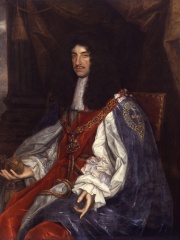
10. Charles II of England (1630 - 1685)
With an HPI of 88.62, Charles II of England is the 10th most famous British Politician. His biography has been translated into 84 different languages.
Charles II (29 May 1630 – 6 February 1685) was King of Scotland from 1649 until 1651 and King of England, Scotland, and Ireland from the 1660 Restoration of the monarchy until his death in 1685. Charles II was the eldest surviving child of Charles I of England, Scotland and Ireland and Henrietta Maria of France. After Charles I's execution at Whitehall on 30 January 1649, at the climax of the English Civil War, the Parliament of Scotland proclaimed Charles II king on 5 February 1649. However, England entered the period known as the English Interregnum or the English Commonwealth with a republican government eventually led by Oliver Cromwell. Cromwell defeated Charles II at the Battle of Worcester on 3 September 1651, and Charles fled to mainland Europe. Cromwell became Lord Protector of England, Scotland and Ireland. Charles spent the next nine years in exile in France, the Dutch Republic and the Spanish Netherlands. A political crisis after Cromwell's death in 1658 resulted in the restoration of the monarchy in 1660, and Charles was invited to return to Britain. On 29 May 1660, his 30th birthday, he was received in London to public acclaim. Charles's English Parliament enacted the Clarendon Code, to shore up the position of the re-established Church of England. Charles acquiesced to these new laws even though he favoured a policy of religious tolerance. The major foreign policy issue of his early reign was the Second Anglo-Dutch War. In 1670, he entered into the Treaty of Dover, an alliance with his cousin, King Louis XIV of France. Louis agreed to aid him in the Third Anglo-Dutch War and pay him a pension, and Charles secretly promised to convert to Catholicism at an unspecified future date. Charles attempted to introduce religious freedom for Catholics and Protestant dissenters with his 1672 Royal Declaration of Indulgence, but the English Parliament forced him to withdraw it. In 1679, Titus Oates's fabrication of a supposed Popish Plot sparked the Exclusion Crisis when it was revealed that Charles's brother and heir presumptive, James, Duke of York, had become a Catholic. The crisis saw the birth of the pro-exclusion Whig and anti-exclusion Tory parties. Charles sided with the Tories and, after the discovery of the Rye House Plot to murder Charles and James in 1683, some Whig leaders were executed or forced into exile. Charles dissolved the English Parliament in 1681 and ruled alone until his death in 1685. A patron of the arts and sciences, Charles became known for his affability and friendliness, and for allowing his subjects easy access to his person. But he also showed an almost impenetrable reserve, especially concerning his political agendas. His court gained a reputation for moral laxity. Charles's marriage to Catherine of Braganza produced no surviving children, but the king acknowledged at least 12 illegitimate children by various mistresses. He was succeeded by his brother James.
People
Pantheon has 805 people classified as British politicians born between 15 and 1997. Of these 805, 200 (24.84%) of them are still alive today. The most famous living British politicians include John Major, Prince Edward, Duke of Kent, and Prince Richard, Duke of Gloucester. The most famous deceased British politicians include Elizabeth I of England, George VI, and Charles I of England. As of April 2024, 34 new British politicians have been added to Pantheon including John Swinney, David Lammy, and John Healey.
Living British Politicians
Go to all RankingsJohn Major
1943 - Present
HPI: 83.84
Prince Edward, Duke of Kent
1935 - Present
HPI: 76.84
Prince Richard, Duke of Gloucester
1944 - Present
HPI: 75.07
Tony Blair
1953 - Present
HPI: 74.61
Alexander, Crown Prince of Yugoslavia
1945 - Present
HPI: 73.64
Nigel Farage
1964 - Present
HPI: 73.64
Liz Truss
1975 - Present
HPI: 73.45
Keir Starmer
1962 - Present
HPI: 72.19
Martin Rees
1942 - Present
HPI: 72.13
Theresa May
1956 - Present
HPI: 71.78
Neil Kinnock
1942 - Present
HPI: 69.95
Michael Howard
1941 - Present
HPI: 69.64
Deceased British Politicians
Go to all RankingsElizabeth I of England
1533 - 1603
HPI: 96.04
George VI
1895 - 1952
HPI: 90.71
Charles I of England
1600 - 1649
HPI: 89.90
George V
1865 - 1936
HPI: 89.85
James VI and I
1566 - 1625
HPI: 89.83
Edward VI of England
1537 - 1553
HPI: 89.67
Edward VIII
1894 - 1972
HPI: 89.23
George III of the United Kingdom
1738 - 1820
HPI: 89.11
Winston Churchill
1874 - 1965
HPI: 88.76
Charles II of England
1630 - 1685
HPI: 88.62
Anne, Queen of Great Britain
1665 - 1714
HPI: 88.37
John, King of England
1166 - 1216
HPI: 88.29
Newly Added British Politicians (2025)
Go to all RankingsJohn Swinney
1964 - Present
HPI: 51.49
David Lammy
1972 - Present
HPI: 48.38
John Healey
1960 - Present
HPI: 45.40
Shabana Mahmood
1980 - Present
HPI: 45.28
Rachel Reeves
1979 - Present
HPI: 42.98
Eluned Morgan
1967 - Present
HPI: 42.51
Emily Thornberry
1960 - Present
HPI: 37.89
Jo Johnson
1971 - Present
HPI: 37.27
Sarah Thomas
1981 - Present
HPI: 36.67
Angela Eagle
1961 - Present
HPI: 36.19
Anne-Marie Trevelyan
1969 - Present
HPI: 35.98
Ben Woollaston
1987 - Present
HPI: 35.51
Overlapping Lives
Which Politicians were alive at the same time? This visualization shows the lifespans of the 25 most globally memorable Politicians since 1700.

